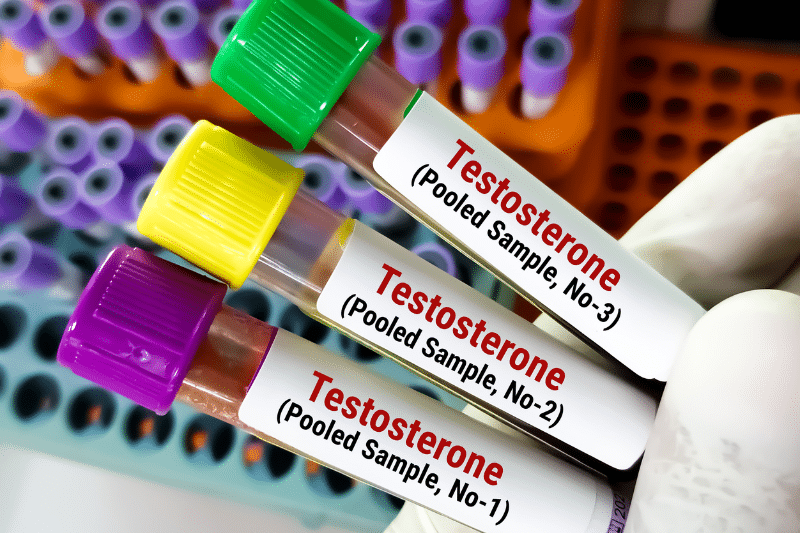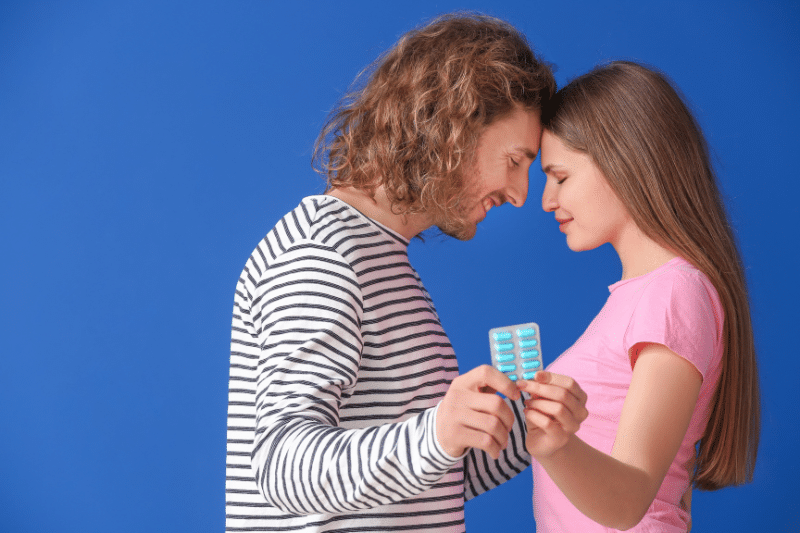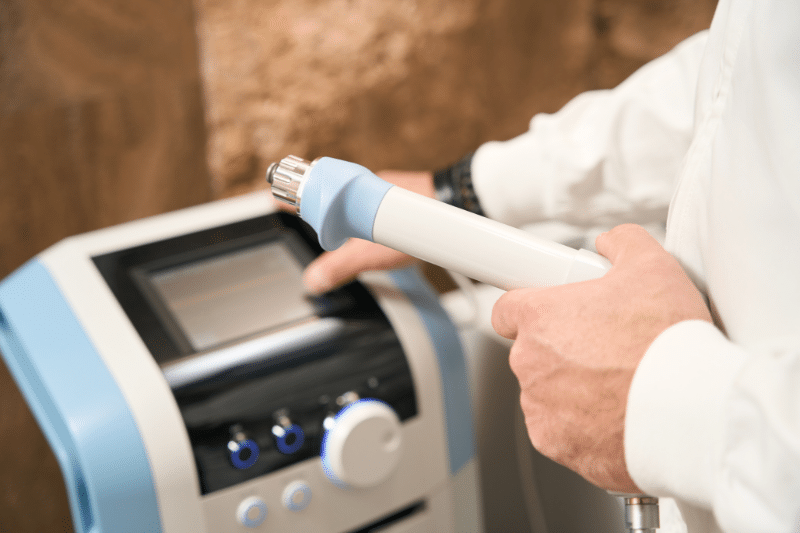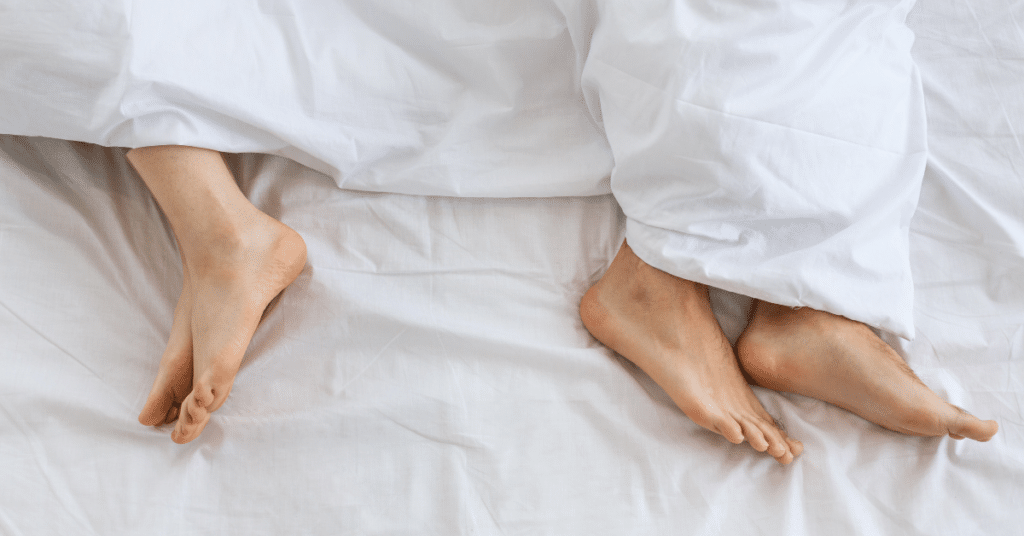Erectile Dysfunction (ED) affects millions of men worldwide, not just their intimate relationships but also their own mental health and emotional well-being. ED is a common medical condition that can be treated.
This guide will cover symptoms, causes, and treatments for Erectile Dysfunction so individuals can understand the condition and how to manage it. It is important to seek medical advice to diagnose erectile dysfunction and identify underlying causes.
Erectile Dysfunction (ED)
What is Erectile Dysfunction?
Erectile Dysfunction is the inability to get or keep an erection firm enough for sex. Erectile dysfunction symptoms may include ongoing issues related to sexual performance. Occasional or prolonged erection or difficulties are not cause for alarm. But if it’s persistent it could be a sign of an underlying health issue that needs attention.
According to NIH, worldwide it’s estimated over 150 million men have ED and that number will double by 2025. In the US alone ED affects 30 million men. The condition gets more common with age, with 40% of men 40-69 and 70% of men 70+.
What Does It Mean If Someone is Impotent?
The term impotence is often used interchangeably with ED, but they’re not the same. Impotence in ED generally means the inability to get or keep an erection, whereas ED can include this but also other sexual dysfunctions like low libido or other premature ejaculation or issues.
What Are Three Types of Impotence?
Impotence can come in three forms:
Primary Impotence
This is when a man has never been able to get an erection. It’s rare and often linked to psychological factors or physical conditions since birth.
Secondary Impotence
More common than primary impotence, this is when a man has had a normal erectile function before but now has issues. Causes causing erectile dysfunction can be aging, stress, or medical conditions like diabetes.
Situational Impotence
This is when it only happens in certain situations. For example, a man can get an erection with a partner but not during masturbation, or vice versa. Situational impotence is often psychological.
How Common is ED in Men 40+?
ED gets more common as men get older. Studies show that 40% of men 40 have some form of ED. This increases by 10% with each decade of life. So by the time men are 70, 70% will have ED.
Although age is a factor. It can be treated at any stage of life. While age increases the chances of ED, it’s not normal. Many men stay sexually active well into their 60s and beyond.

Erectile Dysfunction (ED) – Causes and Diagnosis
Why Does ED Happen?
ED can be caused by a combination of physical and psychological factors. Getting an erection is a complicated process involving the brain, hormones, emotions, nerves, muscles, and blood vessels. A problem with any of these can cause ED. Lifestyle choices like smoking, excessive drinking, and a sedentary lifestyle can contribute to ED.
What Causes Physical ED?
Physical causes of ED are mostly related to blood flow, nerve damage, or hormonal imbalance. Neurogenic erectile dysfunction caused by damage or disease affecting the nerves responsible for triggering erections.
Vascular erectile dysfunction occurs when blood flow to the penis is impaired due to blocked or damaged blood vessels. Here are some physical causes of erectile dysfunction:
Cardiovascular Diseases
Atherosclerosis (clogged arteries) can reduce blood flow to the penis making it hard to get an erection.
Diabetes
Diabetes is a leading cause of ED especially in men over 50. It can cause nerve damage and affect blood flow.
Obesity
Excess weight especially around the belly can cause ED by reducing testosterone levels and increasing the risk of cardiovascular diseases.
High Blood Pressure
Hypertension can damage blood vessels reducing the blood flow needed for an erection.
High Cholesterol
Same to high blood pressure, high cholesterol can cause clogged arteries and impede blood flow to the penis.
Hormonal Disorders
Low levels of testosterone, the primary male hormone can cause ED.
Medications
Some prescription drugs, especially those used to treat high blood pressure, depression, prostate cancer, or prostate conditions, can cause ED as a side effect.

How Do I Know If My ED is Physical?
Physical ED often comes on gradually where a man may notice a slow decline in the firmness or frequency of his erections. Discussing medical history with a healthcare provider is crucial to help identify any chronic health conditions that may contribute to erectile dysfunction.
Individuals should consider any underlying medical conditions like diabetes or heart disease that could be contributing to it. A healthcare provider can do tests to determine if the ED is physical including blood tests, ultrasound, or physical exam.
Can Stress Cause Erectile Dysfunction?
Yes, stress is a big factor in many cases of ED. Psychogenic erectile dysfunction, caused by psychological stress, can prevent the brain from sending the signals for an erection. Stress can come from work, financial problems, or relationship issues. Performance anxiety where a man fears he won’t be able to perform sexually can also cause ED.
Does Diet Affect Erectile Dysfunction?
Diet is important for overall health and can affect erectile function. Diets high in saturated fats, sugars, and processed foods can lead to conditions like obesity, diabetes, and high cholesterol which are risk factors for ED.
A diet rich in fruits, vegetables, whole grains, and lean proteins can enhance cardiovascular health and lower the risk of erectile dysfunction (ED). Maintaining a healthy lifestyle supports proper blood flow and overall well-being, which are key factors in reducing ED risk.
How High Blood Pressure Causes ED?
High blood pressure damages blood vessels including the ones that supply blood to the penis. This damage reduces the blood flow needed to achieve and maintain an erection. Some high blood pressure medications can also cause ED as a side effect.

Erectile Dysfunction (ED) – Treatment Options
How to Fix ED?
The first step to treating erectile dysfunction is to identify the underlying cause. Depending on whether it’s physical, psychological, or a combination of both, different treatment options are available. These may be lifestyle changes, medication, therapy, or a combination of both.
Can ED be Cured?
Curing ED depends on the underlying cause or health condition. For example, if ED is caused by lifestyle factors like smoking or poor diet, making healthier choices can reverse the condition. But if the cause is a chronic illness like diabetes, ED may not be curable but can be managed with the right treatment.
What is the Simple Trick to Fix ED?
There is no one trick to treat erectile dysfunction or prescription medication to fix ED, it’s person-to-person. However, exercise is often touted as a simple solution to improve erectile function. Exercise increases blood flow, improves cardiovascular health, and can increase testosterone levels all of which help in better erections.
How to Fix My ED Naturally?
Natural remedies for ED involve lifestyle changes like improving diet, increasing physical activity, and managing stress. Some men also find herbal supplements like ginseng or L-arginine helpful but should consult with a doctor before starting any new supplement.
How to Fix ED Fast?
For immediate relief, medications like sildenafil (Viagra), tadalafil (Cialis), and vardenafil (Levitra) can quickly improve erectile function by increasing blood flow to the penis.
These medications require sexual stimulation to enhance their effects, as they amplify the natural signaling mechanism triggered by sexual arousal. These medications work within 30 to 60 minutes and can last for several hours. But should be taken under the guidance of a doctor.

What is the Most Effective Medication for ED?
The most effective medication for ED depends on the individual. Sildenafil (Viagra) is one of the most popular choices and works by increasing blood flow to the penis. Other options include tadalafil (Cialis), which lasts longer, and vardenafil (Levitra), which may have fewer side effects. A healthcare provider can help determine the best medication based on individual needs and medical and sexual history together.
Can Testosterone Therapy Help with ED?
Testosterone therapy can be beneficial for men with ED caused by low testosterone levels. Low testosterone can reduce libido and lead to ED, so restoring testosterone to normal levels can improve sexual function. However, it’s not a cure-all, and it’s important to discuss the potential risks and benefits of testosterone replacement therapy with a healthcare provider.
What Are the Side Effects of ED Medications?
While ED medications are generally safe, they can cause side effects in some men. However, the side effects may include headaches, flushing, upset stomach, nasal congestion, and dizziness. In rare cases, more severe side effects such as vision or hearing loss can occur. Always take ED medications under the guidance of a healthcare provider.
How Do ED Treatments Compare (Pills vs. Injections vs. Pumps)?
Pills
Oral medications like sildenafil (Viagra) are convenient and effective for many men. They work quickly and can be taken discreetly.
Injections
Penile injections involve injecting medication directly into the penis to achieve an erection. They can be highly effective, especially for men who don’t respond to oral medications, but some men find them uncomfortable.
Pumps
Vacuum erection devices (pumps) involve placing a tube over the penis and using a pump to draw blood into the penis, creating an erection. While effective, they can be cumbersome to use.
Each option has its pros and cons, and the best choice depends on individual preferences and medical considerations.
Are There Surgical Options to Treat ED?
Surgery is typically considered when other treatments have failed. The most common surgical option is a penile implant, which involves placing a device inside the penis to allow for erections. Penile implants are highly effective, with satisfaction rates exceeding 90%. However, surgery carries risks, such as infection or device malfunction, and should be considered a last resort.

Erectile Dysfunction (ED) – Lifestyle Changes and Natural Remedies
What’s the Best Exercise for ED?
Aerobic exercises like walking, running, or swimming are the best for ED. They improve cardiovascular health, blood flow, and weight management. Strength training exercises like weightlifting can also help with testosterone levels.
How to Deal with Impotence in Men?
Dealing with impotence is a combination of lifestyle changes, medical treatment, and psychological support. Open communication with a partner is key as ED can strain relationships. Get help from a doctor to determine the underlying cause and treatment.
What to Drink to Get Rid of ED?
No drink can cure ED but some may help with the symptoms of erectile and male sexual dysfunction and function. For example:
Pomegranate Juice
Rich in antioxidants, pomegranate juice improves blood flow which is important for erectile function.
Green Tea
Contains catechins which improve blood flow reduce inflammation and may help with erectile function.
Water
Stay hydrated for overall health including sexual health.
Can Diet Change Reverse ED?
Yes, diet change can impact erectile function. A diet rich in fruits, vegetables, whole grains, and lean proteins is good for cardiovascular health which is essential for erections. Reducing processed foods, sugars and saturated fats will improve erectile dysfunction and also help reverse ED.
What Vitamins Are Good for ED?
Several vitamins and supplements are good for erectile function:
Vitamin D
Low levels of vitamin D linked to ED. Get enough vitamin D through sunlight or supplements.
Vitamin B9 (Folate)
Folate in nitric oxide production which is important for erections.
L-arginine
An amino acid that increases nitric oxide production, improves blood flow to the penis.
How Does Losing Weight Help with ED?
Losing weight can have a significant impact on erectile function, especially in men who have heavier body weight. However, excess weight contributes to conditions like diabetes and heart disease, which are risk factors for ED. Weight loss improves blood flow, boosts testosterone levels, and can even reverse ED in some cases.
What Role Does Exercise Play in Managing ED?
Kegel exercises, or pelvic exercises play a vital role in managing ED by improving cardiovascular health, enhancing blood flow, and increasing testosterone levels. Nevertheless, regular physical activity can reduce the risk of developing ED and improve erectile function in men who already have the condition.

Erectile Dysfunction – Long-Term Management and Outcomes
How Long Does It Take to Reverse ED?
The time it takes to reverse ED varies depending on the underlying cause and the treatment approach. Moreover, for some men, lifestyle changes can lead to improvements in a matter of weeks or months. For others, it may take longer, especially if chronic health conditions cause ED.
Is ED a Serious Problem?
While ED itself is not life-threatening, it can be a sign of underlying health issues that are more serious health conditions themselves, such as cardiovascular disease or diabetes. Additionally, ED can have a significant impact on a man’s mental and emotional well-being, leading to stress, anxiety, and depression.
Can Erectile Dysfunction (ED) Be Cured?
ED can often be cured, especially when reversible factors like lifestyle choices or medication side effects cause it. However, if ED caused by chronic conditions like diabetes or heart disease, it may not be entirely curable but can be managed effectively with the right treatment.
Can Impotence Be Cured?
Individuals can treat or manage impotence like ED. The chance of a cure depends on the cause and overall health. Certainly, early intervention and a comprehensive treatment plan are the key to improvement.
What is the Success Rate of Erectile Dysfunction (ED) Treatments?
The success rate of ED treatments varies with the treatment and the individual’s underlying health conditions. Medications like sildenafil (Viagra) have a success rate of 70-80%. Other medical treatments, like penile implants, have a higher success rate of 90% and above. Lastly, the key is to find the right treatment for each individual.
How Does Long-term ED Affect Relationships?
Long-term ED can put a lot of pressure on relationships, frustration, inadequacy, or resentment. Open communication with your partner is key to a healthy relationship. Couples therapy or sex therapy can also help in addressing the emotional and psychological aspects of ED with sexual partner.
Are There Psychological Therapies That Help with Erectile Dysfunction (ED)?
Yes, psychological therapies can be highly effective in treating ED. Particularly when it’s caused by stress, anxiety, or relationship issues. Additionally, Cognitive-Behavioral Therapy (CBT) is one such approach that helps men identify and change negative thought patterns related to sexual performance. Furthermore, therapy can also address issues like performance anxiety, low self-esteem, or depression that may contribute to ED.
What is the Prognosis for Men with ED?
The prognosis for men with ED is generally good, especially with the wide range of treatment options available today. Nonetheless, most men can find relief through lifestyle changes, medication, or other treatments.
However, the long-term outlook depends on the underlying cause of ED and the individual’s overall health. Indeed, seeking help is a positive step towards improving health, sex life and well-being.










